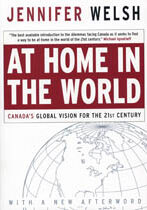In 701 B.C. the Assyrian empire was in its ascendancy. It had already vanquished the kingdom of Israel to the north including the capital at Samaria. It then prepared an assault on Judah and its capital at Jerusalem.
But in one of those significant events that changes the course of world history, Assyria was repelled. Jerusalem was saved until 586 B.C. when the Babylonians sacked the city, forcing its leadership class into exile.
Henry Aubin, in a major feat of scholarship, determines that Jerusalem was aided by a Kushite army from Africa which had marched northeast from the Nile valley. While the Bible attributes the Assyrian retreat to an angel and secular commentators cite pestilence, Aubin, in a meticulously documented work, demonstrates that an alliance with the African nation of Kush bolstered Jerusalem’s defences.
Kush, also known as Nubia, was located in what is now southern Egypt and northern Sudan. A monarchy that existed for more than 1000 years, from 900 B.C. to A.D. 350, Kushites held sway over Egypt from 712 B.C. to about 660 B.C. Of Egypt’s 31 dynasties, this, the 25th Dynasty, is the only one that all scholars agree, was black.
The commander of the Kushite expeditionary force was Taharqa (or as the Bible calls him Tirhakah). This Kushite prince, who had his own interests in halting Assyrian expansion, likely caught the aggressors by surprise as they prepared their siege of Jerusalem.
Aubin offers a thrilling military history and a stirring political analysis of the ancient world. He also sees the event as influential over the centuries.
The Kushite rescue of the Hebrew kingdom of Judah enabled the fragile, war-ravaged state to endure, to nurse itself back to economic and demographic health, and allowed the Hebrew religion, Yahwism, to evolve within the next several centuries into Judaism. Thus emerged the monotheistic trunk supporting Christianity and Islam.

HarperCollins Canada Fall 2004
AT HOME IN THE WORLD:
Canada’s Global Vision for the 21st Century
A recent cover story in the Canadian edition of Time trumpeted: “Would anyone notice if Canada disappeared?†The magazine asserted that Canada’s influence in the world is shrinking fast and that something must be done — now.
Jennifer Welsh, one of this country’s most visionary and accomplished young minds, has an intelligent and innovative plan of action to bolster our diminishing international status and build a coherent direction for the future. This strategy is unabashedly critical of worn-out national myths, yet radical enough to propose a rethinking of our role as global citizens.
At Home in the World examines Canada’s position, both present and future, within two spheres: that of North America and that of the wider world. It details the many challenges that our country faces, such as:
Political complacency
Pressures to continentalize
The changing security landscape
American global power
The shake-up of our international institutions
Welshalso insists that our obsession for a healthy relationship with the United States cannot come at the expense of an international vocation. Canadians have long been instinctively global — at home in the world — and take their global rights and responsibilities seriously. It’s time for our governments and policy makers to reflect our confidence beyond our borders. Now, perhaps more than ever, an active global citizenship is required if Canada is to contribute to solving the world’s most pressing problems.
Jennifer Welsh is University Lecturer in International Relations at the University of Oxford, and a Fellow of Somerville College. She is the author of three scholarly books, including Edmund Burke and International Relations (St. Martin’s Press), praised by Francis Fukuyama as “thoughtful and illuminating.”
In addition to her academic career, Jennifer Welsh spent five years in the private sector – first as a consultant with the international firm, McKinsey and Co, and subsequently as a partner in d~Code, a research and strategy firm focused on the “Nexus Generation.†She was born in Saskatchewan, Canada.